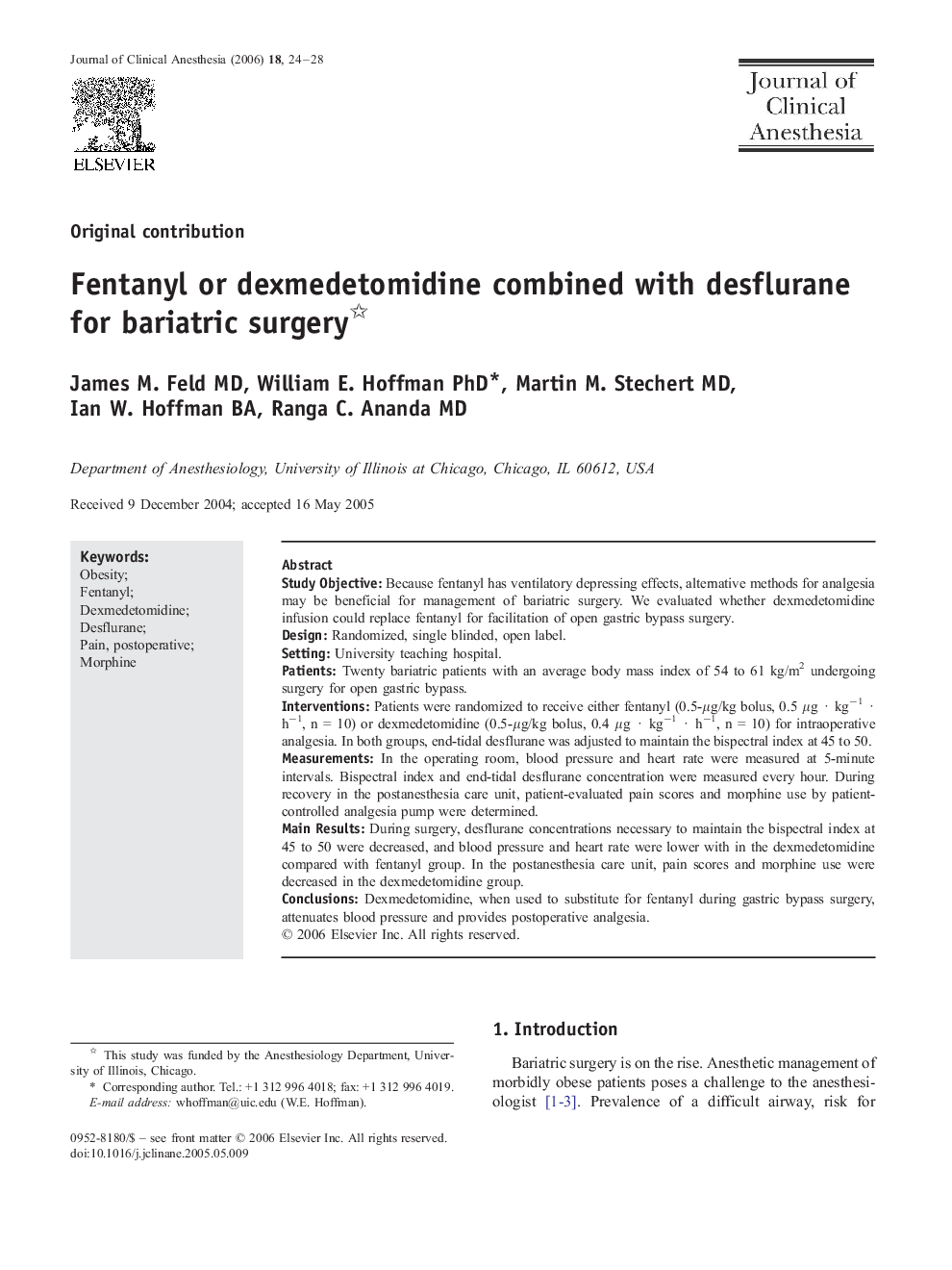| Article ID | Journal | Published Year | Pages | File Type |
|---|---|---|---|---|
| 2764020 | Journal of Clinical Anesthesia | 2006 | 5 Pages |
Study ObjectiveBecause fentanyl has ventilatory depressing effects, alternative methods for analgesia may be beneficial for management of bariatric surgery. We evaluated whether dexmedetomidine infusion could replace fentanyl for facilitation of open gastric bypass surgery.DesignRandomized, single blinded, open label.SettingUniversity teaching hospital.PatientsTwenty bariatric patients with an average body mass index of 54 to 61 kg/m2 undergoing surgery for open gastric bypass.InterventionsPatients were randomized to receive either fentanyl (0.5-μg/kg bolus, 0.5 μg · kg−1 · h−1, n = 10) or dexmedetomidine (0.5-μg/kg bolus, 0.4 μg · kg−1 · h−1, n = 10) for intraoperative analgesia. In both groups, end-tidal desflurane was adjusted to maintain the bispectral index at 45 to 50.MeasurementsIn the operating room, blood pressure and heart rate were measured at 5-minute intervals. Bispectral index and end-tidal desflurane concentration were measured every hour. During recovery in the postanesthesia care unit, patient-evaluated pain scores and morphine use by patient-controlled analgesia pump were determined.Main ResultsDuring surgery, desflurane concentrations necessary to maintain the bispectral index at 45 to 50 were decreased, and blood pressure and heart rate were lower with in the dexmedetomidine compared with fentanyl group. In the postanesthesia care unit, pain scores and morphine use were decreased in the dexmedetomidine group.ConclusionsDexmedetomidine, when used to substitute for fentanyl during gastric bypass surgery, attenuates blood pressure and provides postoperative analgesia.
